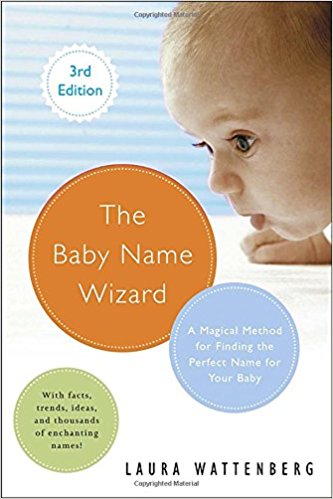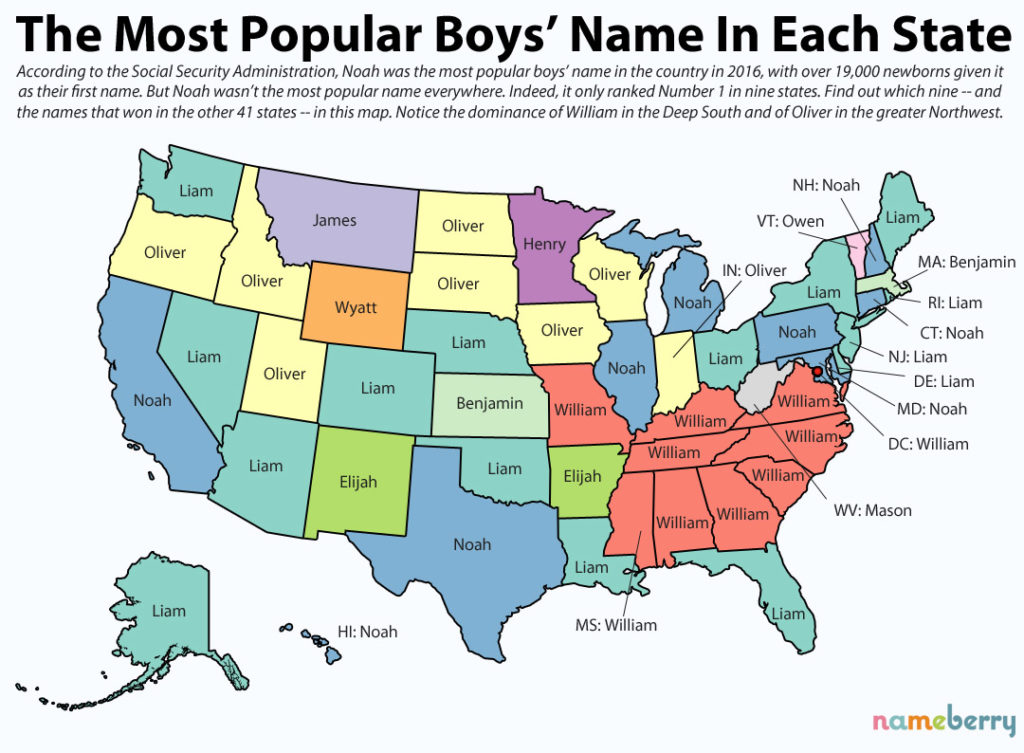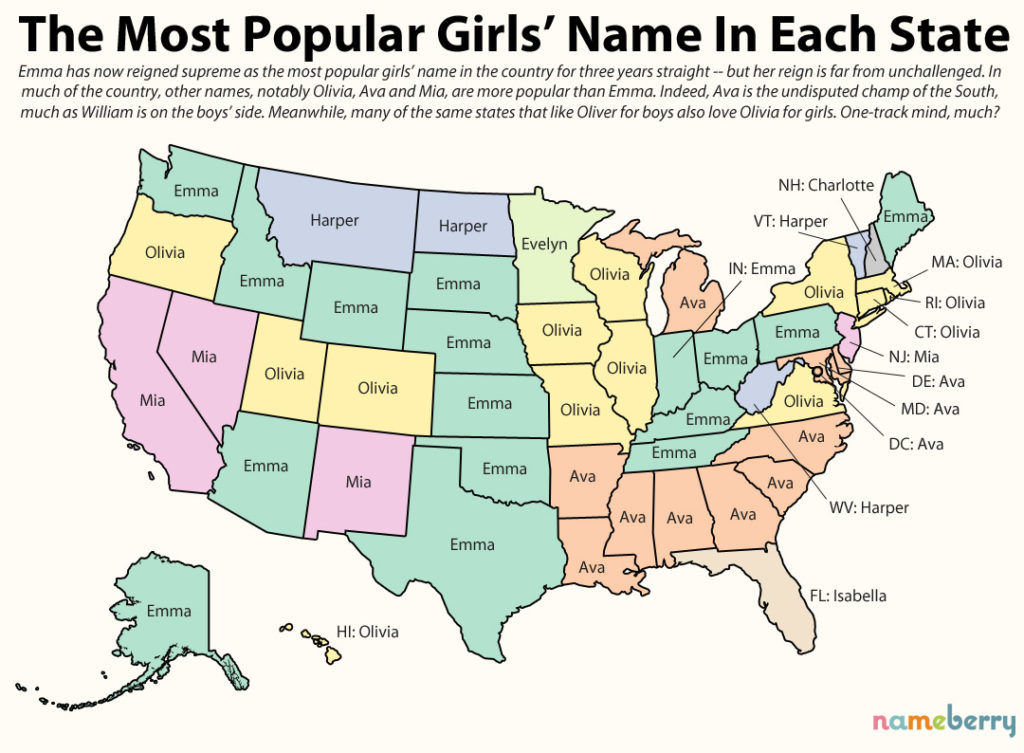
When my husband and I were dreaming of names for our firstborn, we had a great book called The Baby Name Wizard by Laura Wattenburg. Actually, my amazon order history tells me that we bought the book a full year and a half before our son was born, so we were really getting a jump on the baby naming situation. Picking names sounds like one of those magical, fun experiences, like choosing a wedding dress, until you actually have to commit to one, and then it is terrifying. The baby naming may be more stressful than the wedding dress, though, because a) it’s for someone else, and b) they’re pretty much stuck with it for life. (No pressure.)
 Naming a person makes them real to us: they morph from “The Baby” to a named person, who is loved as an individual and not as a concept. When I hear about cultures where babies are not named until after their first birthdays, my heart breaks because I know that there’s probably a good reason that parents are afraid to attach themselves to a named person. The Tsimané, a preindustrial society in the Bolivian Amazon, don’t name their babies and barely talk to them for their first year of life because thirteen percent of their babies die before reaching the age of one, usually from infectious diseases. Parents all over the world name our babies as a way of attaching them to us, and us to them.
Naming a person makes them real to us: they morph from “The Baby” to a named person, who is loved as an individual and not as a concept. When I hear about cultures where babies are not named until after their first birthdays, my heart breaks because I know that there’s probably a good reason that parents are afraid to attach themselves to a named person. The Tsimané, a preindustrial society in the Bolivian Amazon, don’t name their babies and barely talk to them for their first year of life because thirteen percent of their babies die before reaching the age of one, usually from infectious diseases. Parents all over the world name our babies as a way of attaching them to us, and us to them.
The Baby Name Wizard is both informative and hilarious: “Unless your son is a complete physical specimen, the name Adonis might be a burden.” Even though we’re past the baby naming stage of our family life (unless you count dogs, which we kind of do), we’ve kept this book for the entertainment value, but also to remember that time in our lives.
Baby naming can be so fraught. I see the wisdom in the Ashkenazi Jewish tradition of not naming a child after a living relative: what if the relative does something awful before they die, and then you’re stuck with that name? (Spoiler alert: we all do something(s) awful before we die, so this is kind of a sure thing.) Naming children after a deceased relative can be similarly charged: there’s always the possibility that you’ll find out that your great-grandfather spent more time at the bar than with his family, but nobody wanted to mention that to you. This might be how we’ve ended up with made-up names: all of the traditional names already belong to jerks.
When my sister taught in an elementary school, she could tell which soap opera characters were popular in the last decade based on the names coming through her classroom. Living in Texas, I’m fascinated by cowboy names at the Houston Livestock Show and Rodeo. There are a lot of Jakes and Chances and Codys from Oklahoma and Wyoming, but good luck finding a Niles from Connecticut there.

Some of us look toward our family tree for names. The Baby Name Wizard points out that we’re more likely to name our children after members of our grandparents’ generation than our parents’ one. For every Helen, Charlotte, Owen, and Charlie on playgrounds today, will there be a Karen, Linda, Bob, and Kenny in twenty or thirty years? My husband has recently dug up all of our family skeletons that can be found on ancestry.com, and he’s found some great virtue names among the Puritans in our history: Temperance. Patience. Verity. Mercy. Thankful.
I think about Thankful a lot. We all want our children to be grateful, and we want to be grateful for them. But what if Thankful wasn’t feeling particularly thankful? (For that matter, I can imagine a Mayflower-sized scandal if Purity found herself in the family way before marriage.) What if Thankful was thankless and ungrateful and miserable, and her name became something of an ironic joke among her fellow Puritans? I don’t imagine there was much time to keep a gratitude journal on Plymouth Rock. (Sorry, Oprah.)
I’m reminded that our names, like our identity in Christ, aren’t about how we’re feeling on any particular day. Thank God. Our names might represent the best hopes and dreams our parents have for us, but God knows us beyond any of those wishes or even the virtues we hope for. “But now this is what the Lord says – he who created you, Jacob, he who formed you, Israel: ‘Do not fear, for I have redeemed you; I have summoned you by name; you are mine.'” He counts the hairs on our heads. He has his eye on the sparrow. And he knows us by name.


COMMENTS
One response to “I Have Summoned You by Name”
Leave a Reply













Love it, Carrie! You are remarkable and so talented.